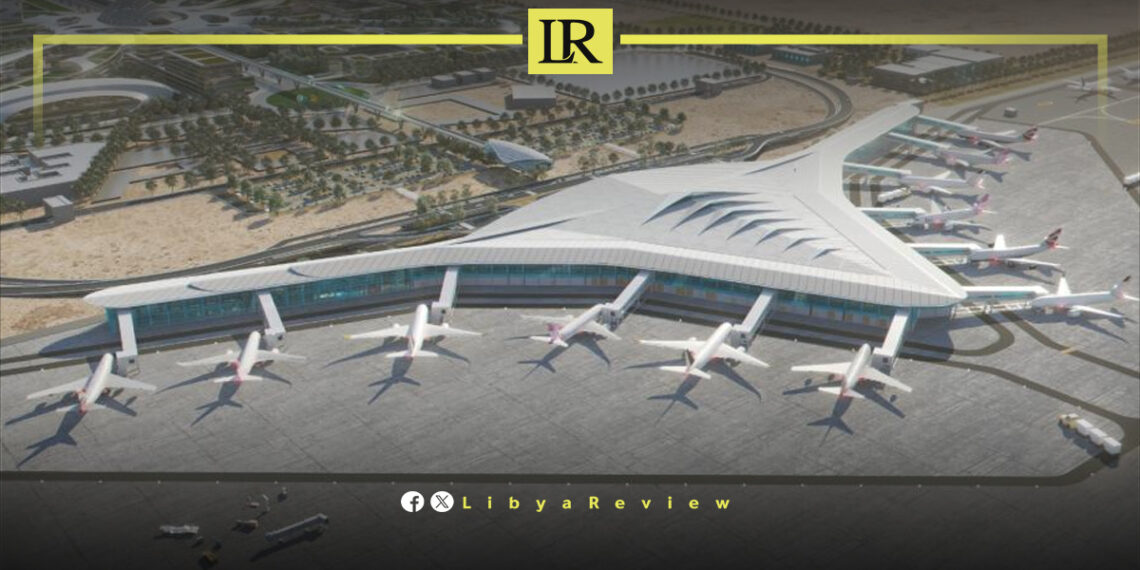Libya is set to launch a major gateway into global trade and aviation with the opening of the $1.3 billion Benghazi International Airport in 2026, a key pillar of the country’s Vision 2030 strategy to transform itself into a regional hub connecting Africa, Europe, and the Middle East.
Delivered by the National Development Agency (NDA) in partnership with Global Builders Company, a subsidiary of Terminal Group Holding, the new airport marks one of Libya’s most ambitious infrastructure undertakings to date. At the forefront is Mahmud Elforjani, executive director of the NDA, who has championed major projects aligned with Libya’s national agenda.
“The new Benghazi International Airport is not just a gateway to the world — it’s a gateway to Libya’s future,” said Elforjani. “This project will catalyse trade, tourism, and economic development, while showcasing the immense potential of our people and our geography.”
Spanning 24 square kilometres, the airport will accommodate up to 15 million passengers annually. The design includes a 125,000m² passenger terminal, a VIP terminal, cargo logistics hub, and a 3.8-kilometre runway — the longest in North Africa and fully capable of handling aircraft like the Airbus A380.
The new facility is a cornerstone among over 150 strategic infrastructure projects being implemented under Vision 2030 Libya, a national development blueprint aimed at building a diversified, sustainable, and inclusive economy. The strategy is founded on three pillars: A Flourishing Society, A Balanced Economy, and A State for the People.
Benghazi International Airport will be fully integrated with the nearby Juliana Free Zone and Port, currently undergoing upgrades to serve as a multimodal transport and trade centre. The broader vision also includes trans-Saharan corridors, economic free zones, and strengthened connectivity to sub-Saharan Africa.
More than 2,500 jobs are being created through the project, involving teams from 12 countries, yet its development focus remains local and inclusive. Opportunities in employment, training, and services are being extended to Libyans, reinforcing the NDA’s commitment to human capital and regional upliftment.
Additionally, Libya’s ultra-low aviation fuel costs are expected to attract major international airlines and logistics operators, offering a competitive edge in a tightening global aviation market.
With Benghazi’s transformation into a logistics and transport powerhouse, the new airport represents not only a bold infrastructural leap — but a strategic pivot toward Libya’s long-term stability and prosperity.


